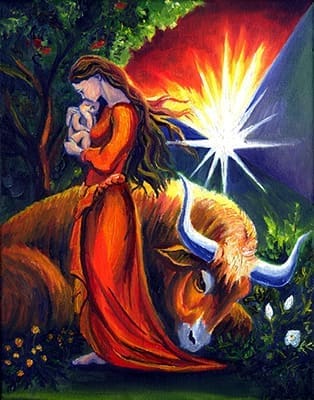Revealing our true hearts to God at Christmas
By Lorraine V. Murray, Commentary | Published December 20, 2018
“Come in, but please excuse the mess.”
How often we greet visitors with these words, hoping they’ll forgive the chaos—which might feature dust bunnies sneaking across the floor, proclaiming, “She’s a terrible housekeeper!”
And yet, when it’s a really close friend, we don’t ask forgiveness for the mess, because we know it doesn’t matter to them.
That’s because friends are people who’ve seen us in the morning when our hair is standing straight up. They’ve seen us in our comfy pajamas with big furry slippers—and after that terrible haircut that made us want to hide.
And they’ve loved us through it all.
We trust we can open our lives to our friends, and tell them things that might embarrass us or bring us to tears—and they won’t turn away.
Still, how often we try to hide our messes from God, fearful that if he sees the dusty places and the chaotic corners, he might reject us.
And then comes Christmas, which beckons us to reveal our true hearts to him.
 Jesus didn’t demand that the world he came into be clean and shiny. He could’ve been born in a gleaming, majestic palace and wrapped in silken garments. He could’ve had parents who were well-situated in society.
Jesus didn’t demand that the world he came into be clean and shiny. He could’ve been born in a gleaming, majestic palace and wrapped in silken garments. He could’ve had parents who were well-situated in society.
Instead, he was born to simple people in a messy, cold stable, where he was surrounded by bleating and braying beasts, whose aromas surely permeated the air.
In her poem about his birth, “In the Bleak Midwinter,” Christina Rossetti writes that “a breastful of milk” and “a mangerful of hay” were enough for Jesus.
Although angels and archangels were gathered there, she writes, his mother worshipped the beloved child with something so simple—a kiss.
As an adult, Jesus warned his friends about hardening their hearts against God, and perhaps when we hear his words at church, we think, “Oh, Jesus, I’d never do that to you.”
Still, the other day, I had lunch with someone for the first time, and knew the fellow wasn’t Catholic. As the food was served, a strong desire to say a blessing arose in my heart, but I squelched it because of a cowardly fear of imposing my beliefs on him. Later, I realized I’d hardened my heart against an impulse from the Holy Spirit.
Revelation tells us, “Behold, I stand at the door knocking,” and we may believe God wants to come into a perfect heart.
But remember that Peter himself said, “Depart from me, for I am a sinful man”—and yet Jesus stayed with him. So we needn’t make excuses about the cobwebs and the dust and the broken places, because, you see, Jesus knows about them—and still knocks.
Rossetti asks the poignant question, “What can I give him, poor as I am? If I were a shepherd, I would bring a lamb. If I were a wise man, I would do my part.”
She finally decides she will give him her heart, which is the most poignant present we can bestow on Christ. An invitation into our hearts that comes with no excuses.
We can welcome him into the dark places, the secret rooms we’ve closed to everyone else. There, we can worship him with a kiss, while trusting that, no matter what, he will always be our dearest friend
Artwork is by Jef Murray. Lorraine’s email address is lorrainevmurray@yahoo.com.